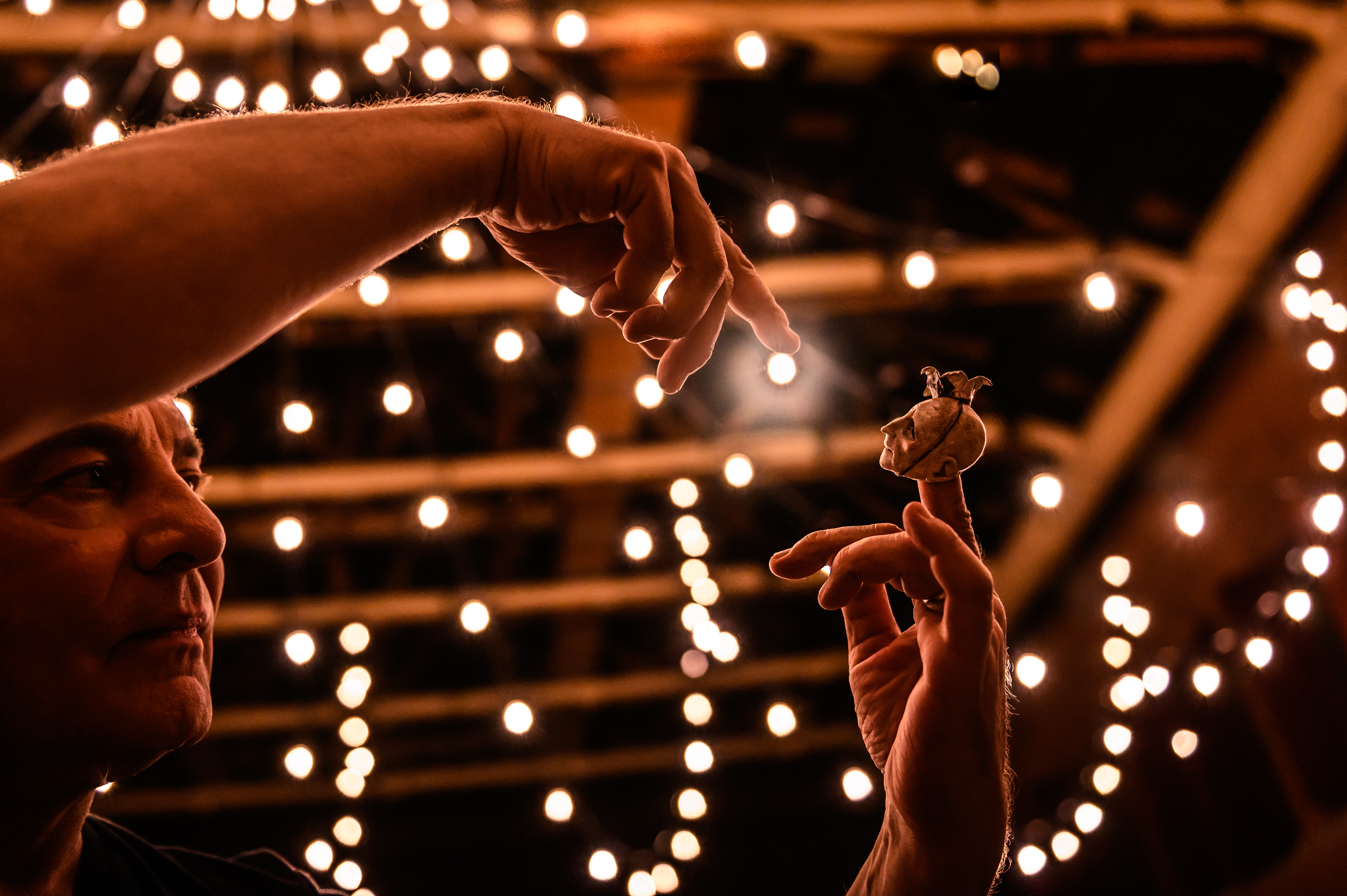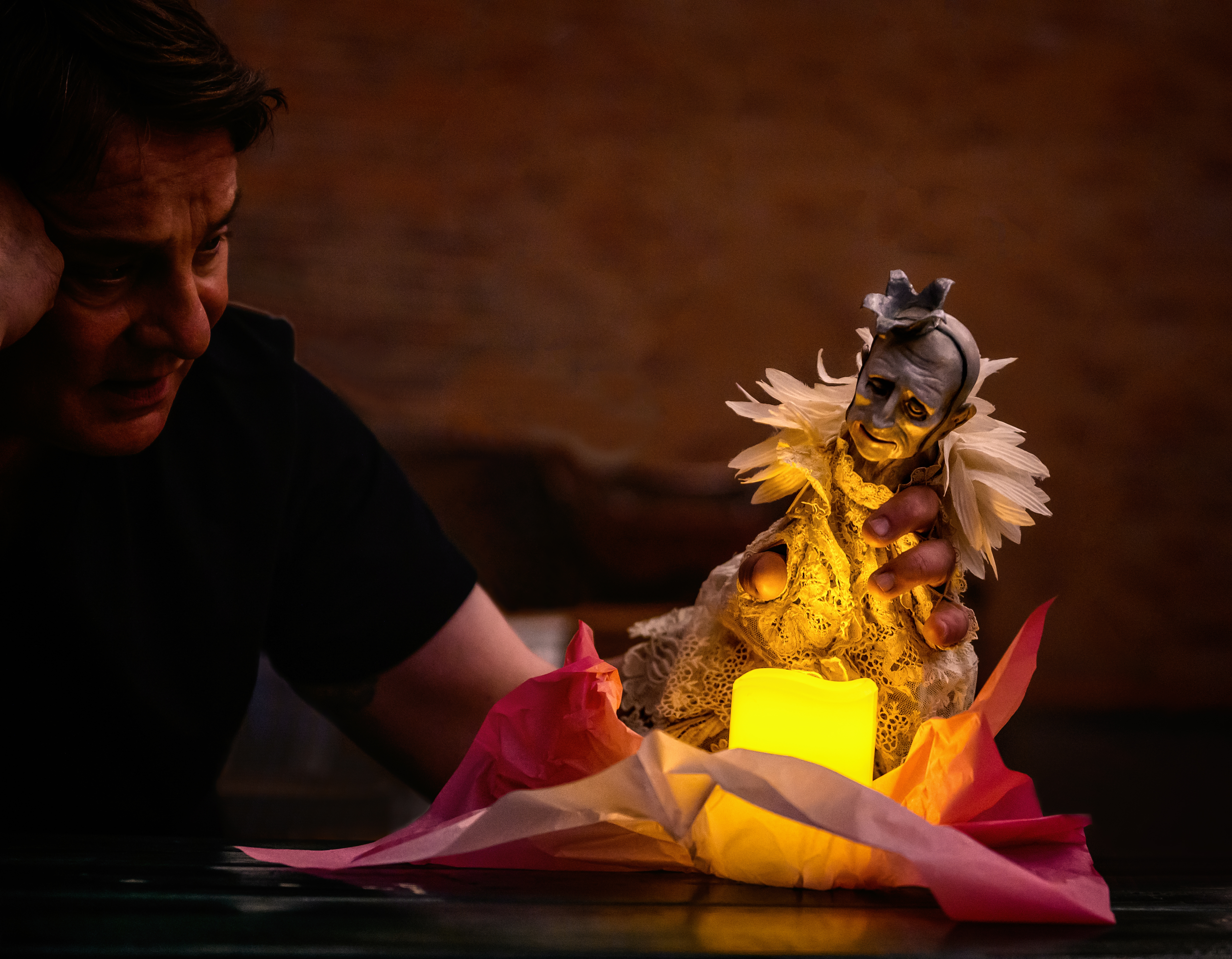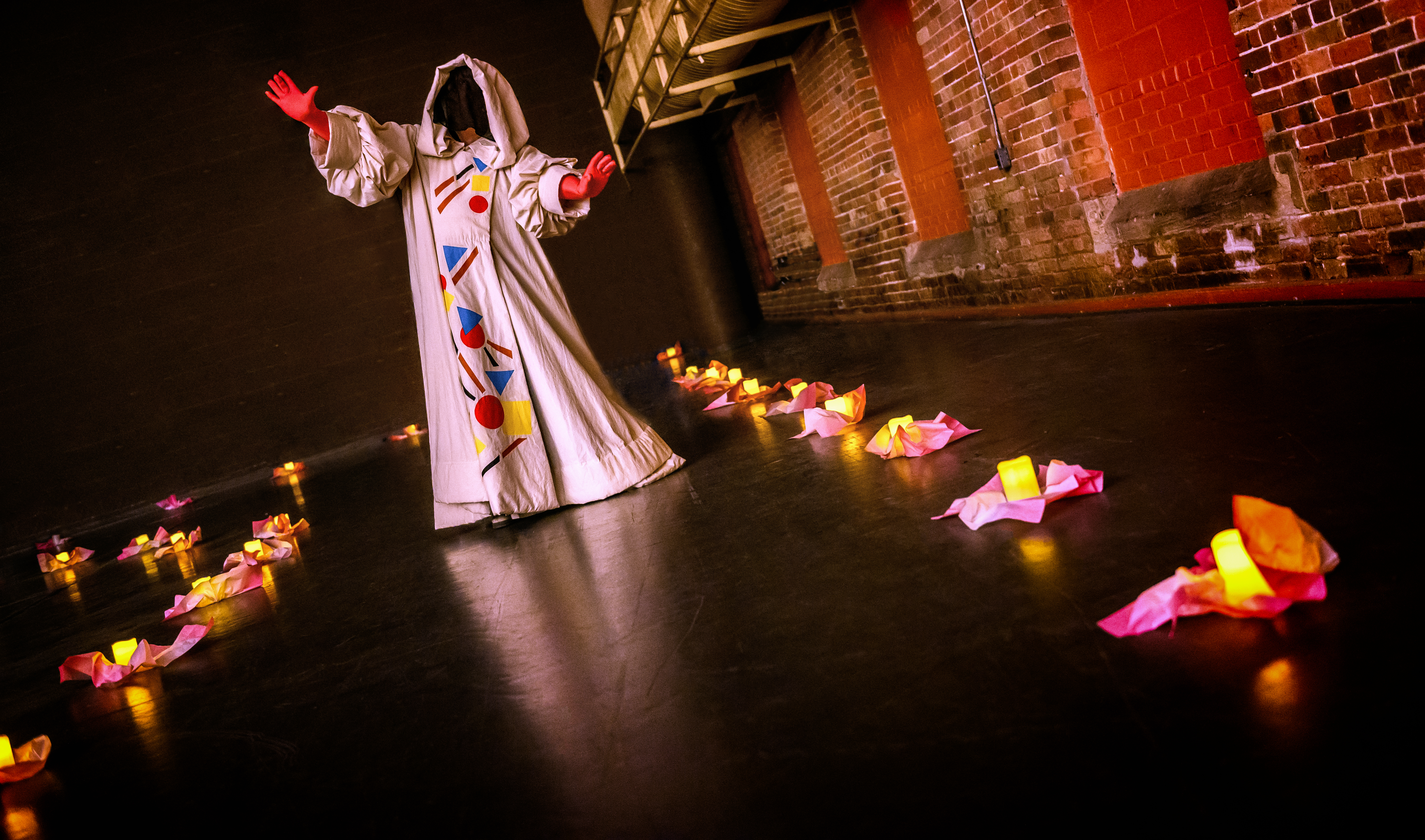
At first glance, a theatre show with a secret location may seem like an exclusionary practice rather than a way to build community. However, after descending into the theatre space, and entering the strange, slightly uncomfortable, but always thought-provoking world of Ronnie Burkett’s “Forget Me Not,” the audience quickly becomes part of a community that welcomes curiosity and participation.
The secret location is a large basement decorated with what look like cast-offs from the living room of an eccentric aunt, dimly lit with strings of glowing Eddison bulbs and decorated with hanging handwritten notes. Burkett opens the show with a tale fit for medieval royalty, a typical saga of love and chivalry told with a sharp tongue and a rare recognition of misogyny in these types of love stories. We learn that we have entered the lair of She, a keeper of love letters, while we hide from the authorities who have banned writing and track our every move and word.
The community aspect in this secret location builds as we are each given a handmade puppet, our “Other”, to express our truest selves with. This is the strength of the play, as I see the generally older audience come alive with delight of simply playing. We are encouraged to greet our neighbours, our “Others” hugging and dancing together.

I liked having an extension of me, even if my “Other” puppet has the haircut like an emo boy in 2011, and now I try to recall if I am always this present in myself, witnessing my “Other” engaging with the world.
In his pre-show interview with The Georgia Straight, Burkett noted that the show is not a “passive immersive thing, this is the audience working to create and populate the scenes.” We interact with Burkett’s beautifully-crafted puppets as he spins stories that blur the line between past and future.
The main puppets, played in different voices by Burkett, tell us their feelings of unrequited love, insecurity, fears of being too weird or not enough. We are encouraged to move around as the story progresses, playing roles either voluntarily or as dictated by the puppet master, and shining lights to illuminate the characters and cast shadows on the wall.
While I am not of the generation that is very concerned with the new ways “the youth” are communicating, the grief over the loss of connection is a feeling that we all can empathize with. It is clear that Burkett has a lot to say and we are both participants and witness to this grief.
At times I felt quite uncomfortable. It is not easy to enter someone else’s world, with their whole history and imagination on display, and be asked to participate. A friend noted that it can be difficult to gain the audience’s trust, and I certainly did not like to be yelled at on a Wednesday evening even if it is done to create the urgency of surviving in a dystopian world.

Some of the female characters also felt underwritten. Although She, the reader and writer of love letters, is the main character, she doesn’t have her own voice and is just transmitting the feelings and words of others. Some of the interactions felt a bit forced although we were perhaps being reminded, albeit harshly, of the dangers of passivity in our society as well.
This discomfort may be the point of theatre, especially at PuSh where we are often encouraged to get past our comfort zone and daily routine. Feeling comfortable is not a luxury that many people in the world can claim. This was especially evident in Burkett’s use of Nazi imagery and odes to eastern European Roma travelling circuses throughout the production. We as a world have seen and are still seeing the terrible consequences of forgetting to empathize with one another.
Almost a week later, I am still taking my memories of the time spent together in that cavern with me. I’m sure that many of the participants are also thinking of writing their loved ones a handwritten letter and I sometimes imagine my “Other” to ground myself throughout the day.
As I was leaving the theatre, I looked closer at what I thought were handwritten love letters hanging from the ceiling. I realized that they was scrawled dialogue from the play itself; the room was filled with the script and Burkett’s notes. While this may not be a love letter in the traditional sense, the show can be seen as a kind of letter to this cold city and the world, a letter of love for human stories and hope that we keep connecting. These themes will certainly not be easy to forget.
– Franny Varty
